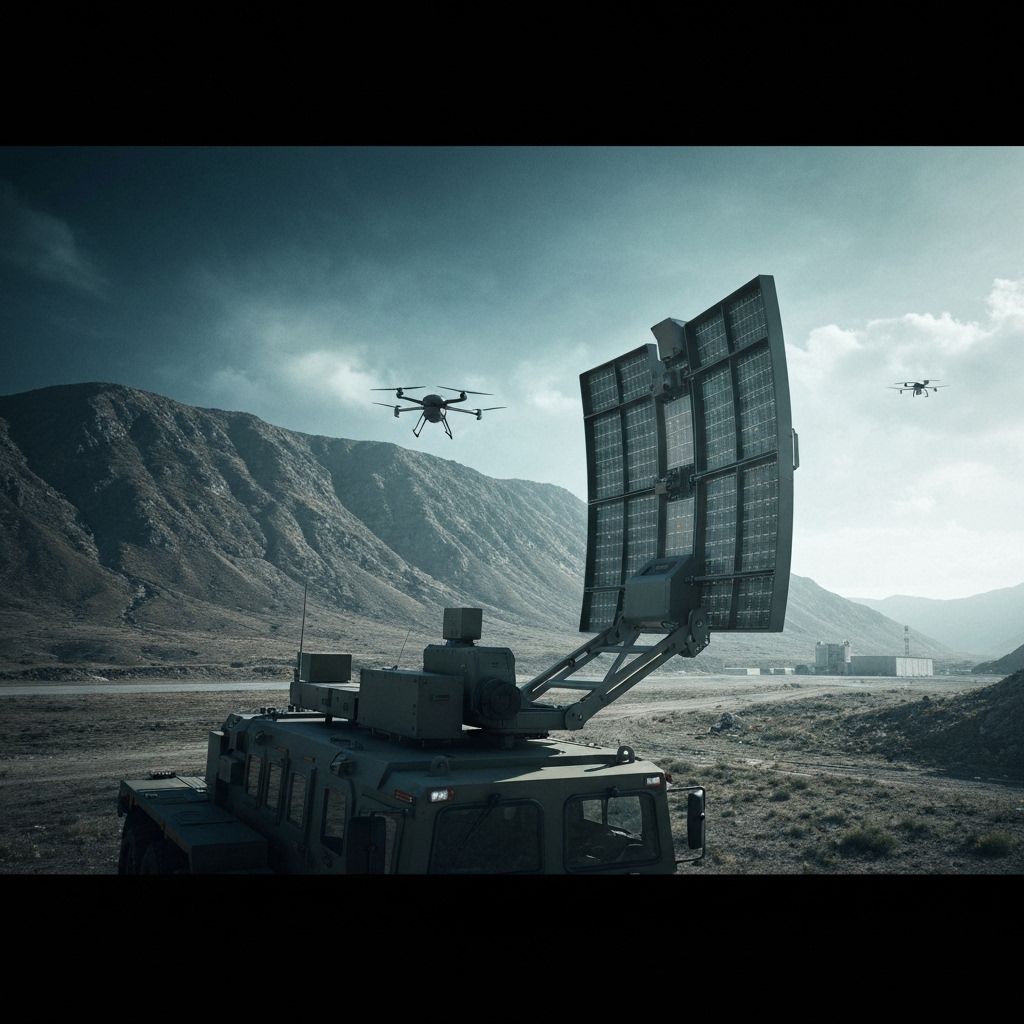US Army Awards $98.9M Contract to TurbineOne

The US Army has awarded TurbineOne, a defense technology startup, a $98.9 million contract to deploy AI-powered software that helps identify and track drones and other aerial threats. The five-year contract represents one of the largest AI defense contracts awarded to a startup this year and highlights the military's growing reliance on artificial intelligence for national security applications.
TurbineOne's technology uses advanced machine learning algorithms to analyze radar, visual, and acoustic data to identify unmanned aerial vehicles (UAVs) in real-time. The system can distinguish between different types of drones, assess threat levels, and provide recommendations for countermeasures, all within seconds of detection.
"This contract validates our approach to AI-powered threat detection," said Colonel (Ret.) Michael Rodriguez, CEO and founder of TurbineOne. "Our system provides military operators with the speed and accuracy they need to respond to evolving drone threats in complex operational environments."
The contract will see TurbineOne's software deployed across multiple Army installations and forward operating bases, with initial deployments beginning in early 2025. The system will integrate with existing radar and sensor networks, providing enhanced situational awareness for base security and perimeter defense.
Drone threats have become increasingly sophisticated in recent years, with adversaries using swarms of small, low-cost UAVs to overwhelm traditional defense systems. The conflict in Ukraine has demonstrated how commercial drones can be weaponized and used effectively against military targets, prompting US forces to seek more advanced detection and countermeasure capabilities.
TurbineOne's AI system addresses several key challenges in drone detection. Traditional radar systems often struggle to identify small drones flying at low altitudes, while visual detection methods can be hampered by weather conditions or camouflaged vehicles. The company's multi-sensor approach combines different detection methods to provide more reliable threat identification.
The software also includes predictive analytics capabilities that can anticipate drone flight paths and suggest optimal interception strategies. This feature is particularly valuable in scenarios involving multiple drones or coordinated attacks, where human operators might be overwhelmed by the speed and complexity of the threat.
"The ability to process multiple data streams simultaneously and provide actionable intelligence in real-time is what sets this system apart," explained Dr. Sarah Kim, TurbineOne's chief technology officer. "Our AI models have been trained on thousands of hours of drone flight data, allowing them to recognize patterns and behaviors that might not be apparent to human operators."
The contract includes provisions for ongoing software updates and improvements, ensuring that the system can adapt to new types of drones and evolving threat tactics. TurbineOne will also provide training and technical support to Army personnel responsible for operating the system.
Industry experts view the contract as a significant milestone for AI applications in defense. The military's willingness to invest nearly $100 million in a startup's AI technology demonstrates growing confidence in machine learning solutions for critical security applications.
"This contract shows that the Department of Defense is serious about leveraging AI for national security," said James Patterson, a defense industry analyst at the Center for Strategic and Budgetary Assessments. "TurbineOne's success could pave the way for more AI startups to compete for major defense contracts."
The award comes as part of the Army's broader modernization efforts, which prioritize the integration of AI and autonomous systems into military operations. The service has been investing heavily in AI research and development, with plans to deploy AI-enabled systems across multiple domains including logistics, intelligence, and combat operations.
TurbineOne, founded in 2019 by former military officers and AI researchers, has previously worked with the Department of Defense on smaller pilot programs. The company has raised $45 million in venture funding from investors including Andreessen Horowitz and Founders Fund, both of which have been active in defense technology investments.
The contract is expected to significantly accelerate TurbineOne's growth, with the company planning to hire additional engineers and expand its research and development capabilities. The startup also sees potential applications for its technology in civilian markets, including airport security and critical infrastructure protection.
As drone technology continues to evolve and proliferate, the need for sophisticated detection and countermeasure systems is likely to grow. TurbineOne's success with this contract positions the company as a key player in the emerging market for AI-powered defense solutions, with potential for additional contracts and international sales in the future.
